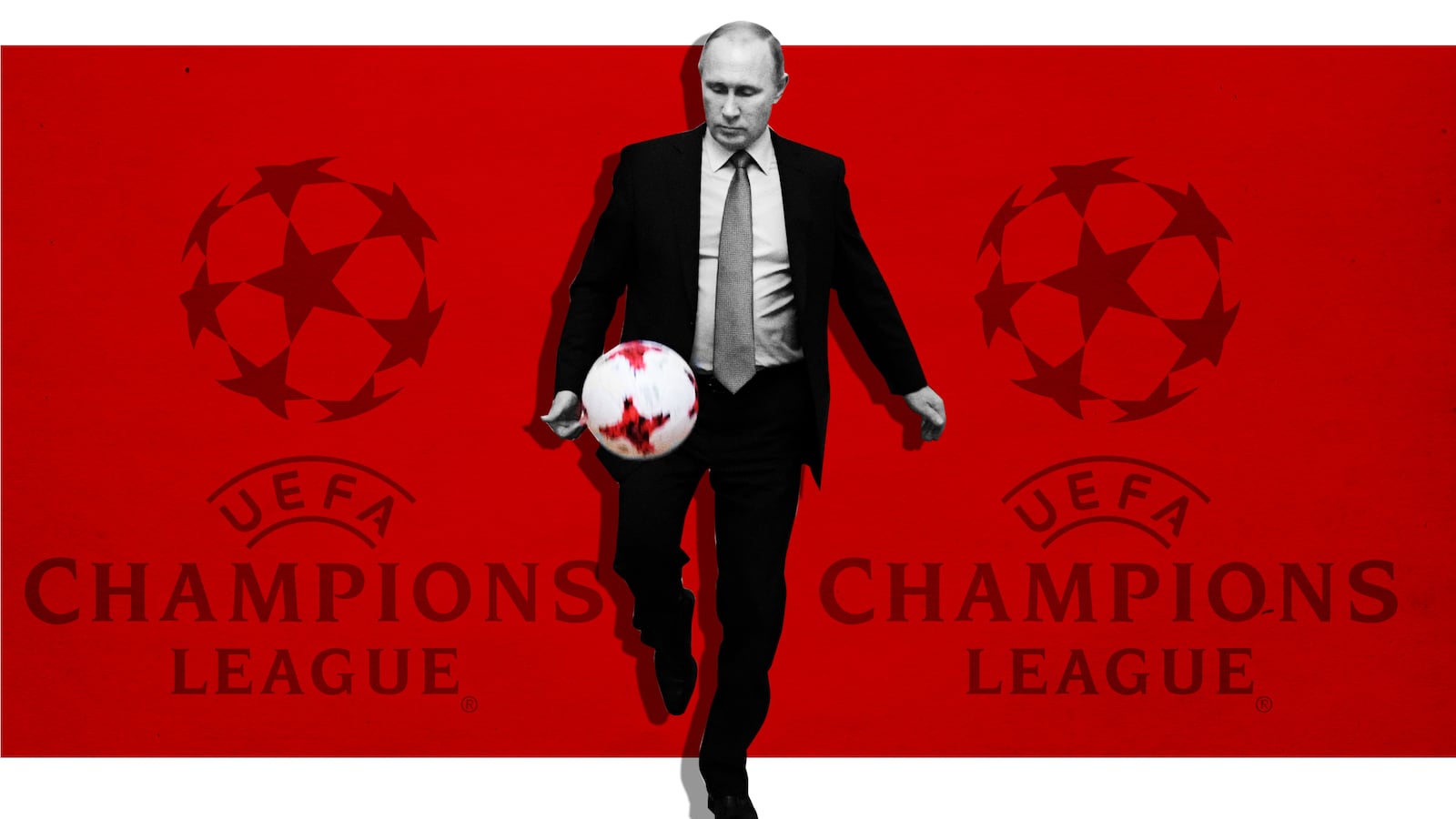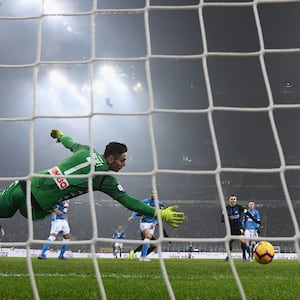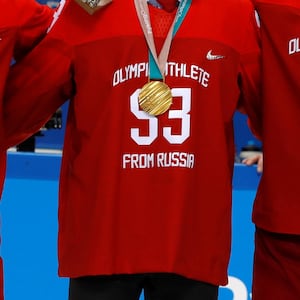ROME—When the World Anti-Doping Agency (WADA) announced what seemed like sweeping sanctions by banning Russia from all major sports events for the next four years, it looked like the anti-doping movement finally won a major victory. But thanks to the European soccer entity UEFA, the ban is not exactly comprehensive.
Under WADA’s rules, events held by the Union of European Football Associations are not part of the ban. UEFA runs some of the soccer world’s most prestigious events including the UEFA European Football Championships, the next of which are called the Euro 2020. In fact, St. Petersburg, Russia, is a host city for some of UEFA’s most important—read: money-making—upcoming Euro 2020 group matches, including the quarter-finals next summer. The Russian city will then host UEFA’s Champions League final in 2021—all while under the four-year ban.
Russia will be allowed to participate in all UEFA events because they are not considered “major events” by the International Standard for Code Compliance by Signatories, the rules of which say that because UEFA is a single-sport body, it doesn’t meet the mark. Never mind that the competitions are watched by millions of global soccer enthusiasts—the last Euro championship game had 600 million viewers, far more than the Rio Olympics opening ceremonies. They also command massive multimillion-dollar sponsorships in their packed stadiums. UEFA is expected to turn $3.6 billion in profits for the 2019/20 season alone, according to their own financial scorecard. Not bad for a body whose events aren‘t “major.”
UEFA has the power to ban Russia on its own to show support for WADA and clean-sport efforts, but they won’t. When reached for comment, a UEFA spokesperson told The Daily Beast, “UEFA has no comment to make on the matter and we refer you to the WADA communication where it appears that EURO 2020 is not affected by the ban.”
In their communication, WADA strongly condemns Russia’s impact on anti-doping efforts. “For too long, Russian doping has detracted from clean sport,” the statement says. “Russia was afforded every opportunity to get its house in order and re-join the global anti-doping community for the good of its athletes and of the integrity of sport, but it chose instead to continue in its stance of deception and denial.”
To that point, Russia’s violations against doping regulations have had a direct impact on countless clean athletes who unfairly lost world records, medals and sporting competitions. “This entire fiasco created by Russia has cheated far too many athletes of their dreams and rightful careers,” the WADA panel said in a statement announcing the ban.
The major events that Russia is banned from include events like the Olympic Games and those run by the International Swimming Federation, the International Association of Athletics Federations, and the groups that govern world cycling competitions and world basketball contests—the latter of which pales in comparison to UEFA soccer.
Russia is also banned from FIFA—soccer’s international governing body—and its holy grail event, the World Cup, which will be held in Qatar in 2022. Alhough, thanks to UEFA, Russia could easily get to play on a technicality if they qualify through UEFA events, as long as they compete on a “neutral” basis—meaning team members can’t have doping charges and the team can’t fly the Russian flag or play the anthem during the competition.
To understand why UEFA won’t do what many in the sporting world believe is the right thing for the good of athletes worldwide and ban Russia, it’s important to look at the organization’s history with the sporting world’s other big problem: racism.
For years, UEFA has been extremely soft on teams whose fans engage in such practices as making monkey howls or throwing bananas when black players come onto the field. In an early Euro 2020 qualifier this year between Bulgaria and England, Bulgarian fans carried out horrific racist actions that included monkey chants when England’s star black players Raheem Sterling and Tyrone Mings were on the field. They also performed Hitler’s Nazi salutes in the stands. Twice, play was stopped in the first half as the offended players looked on in dismay. At half time, England had a choice to make: They could either not return to play or face continuing taunts. They went back out on the field and won the match 6-0.
Bulgaria’s coach Krasimir Balakov said he hadn’t heard any insults despite efforts by some of his players to calm the crowd. Some players were in denial, too. “The crowd was behaving well,” Bulgaria goalkeeper Plamen Iliev said. “I have not heard any insults.” They certainly wouldn’t have been aimed at him anyway–he’s white.
The head of Bulgaria‘s Football Union, Yordan Lechkov, also brushed off the incident. “It’s quite disappointing to focus on racism,” he said. “It’s not serious to concentrate on that if there’s a qualifier like this and we’re playing against a team like England.”
UEFA apparently agreed. They fined the team a paltry €75,000–which is less than Danish player Nicklas Bendtner was fined for exposing the waistband of his underwear to show a Paddy Power logo while celebrating a goal. UEFA also made them play two matches behind closed doors, but allowed them to use the results towards their competition status. UEFA does have a set protocol if a team feels its members are being subject to racism: They can leave a game with penalty as a last resort, but only after other methods like halting play, scolding the crowd, and carting off unruly fans have been exhausted; and the decision is the team’s alone, not the governing body.
Earlier this month in Italy, when leading sports paper Corriere Dello Sport ran a hideous cover story with two black players under the headline “Black Friday,” UEFA did nothing. When reached by The Daily Beast for comment at the time, UEFA said, “It is an unfortunate choice of headline and unlikely to help a mature discussion of the serious issue facing the game and wider society.”
A week before WADA’s ban on Russia and UEFA’s refusal to follow suit, the editorial board of the Guardian weighed in on UEFA’s lack of resolve. “For its part, UEFA must begin to impose meaningful sanctions where there is a pattern of repeated racial abuse in stadiums, up to and including the expulsion of clubs and countries from tournaments,” the newspaper wrote.
Given the soccer governing body’s lack of resolve on racism, it seems hopeless they will punish Russia’s blatant doping violations to support the rest of the sports world. Anyway, keeping Russia in the competitions makes financial sense for the soccer body. Russia has three teams in the current Euro 2020 competition and has already invested millions to host games in the coming years. And now with soccer being the only sport Russians will get to play on a global stage, they will surely draw big crowds and fill up those stadiums.








